GĐXH – According to experts, measles is developing complicatedly. It is worth mentioning that measles is the fastest spreading disease among infectious diseases, the infection rate is even higher than COVID-19.
Measles is still complicated
Recently, the number of measles cases has been complicated and tends to increase. Not only children have measles, many adults are also hospitalized in critical condition.
According to the statistical report at the National Children's Hospital, in 2024 and the first 3 months of 2025, the hospital had a total of 3,799 positive measles tests (tested by PCR and IGM methods). Of these, 2,690 cases had to be hospitalized for treatment.
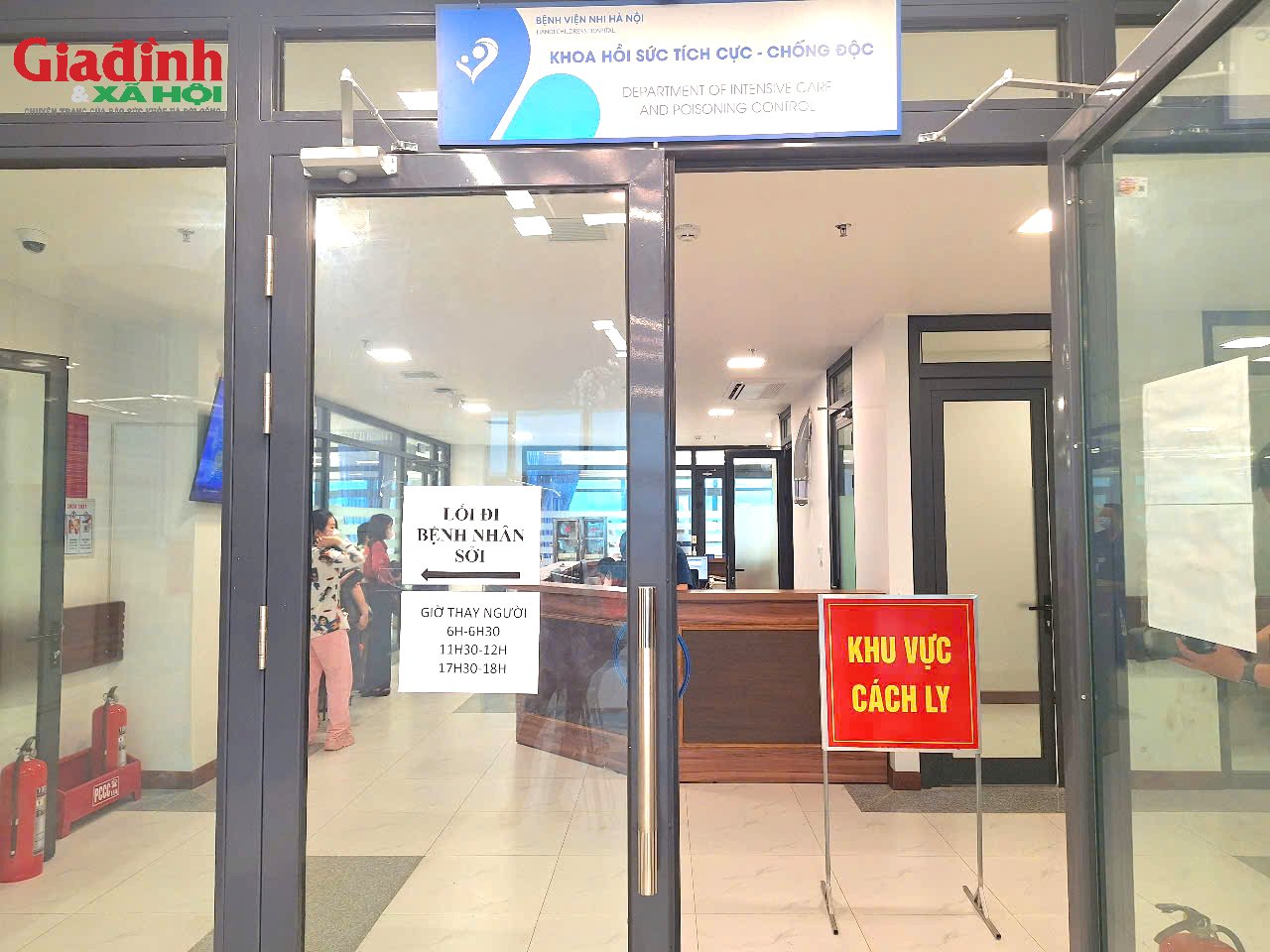
Isolation area for treating measles patients at Hanoi Children's Hospital. Photo: N.Mai.
The number of measles cases from January 2025 to March 26, 2025 was 1,894, nearly double the total number of cases in 2024 (796 positive cases). Thus, it can be seen that the measles situation is increasing and becoming more complicated. In particular, more than 55% of children with measles were not vaccinated or had not received enough doses.
At the Institute of Tropical Medicine, Bach Mai Hospital, from the end of 2024 until now, 104 measles patients have been examined and treated, including many severe cases, 2 cases requiring invasive ventilation, 1 case requiring ECMO, and have been discharged from the hospital in stable condition.
At Hanoi Children's Hospital, Master, Doctor Nguyen Van Truong, Deputy Head of the Department of Intensive Care and Anti-Poisoning, said that the number of measles cases coming for examination and treatment (both inpatients and outpatients) at the hospital from the beginning of 2025 to now is about more than 400 cases.
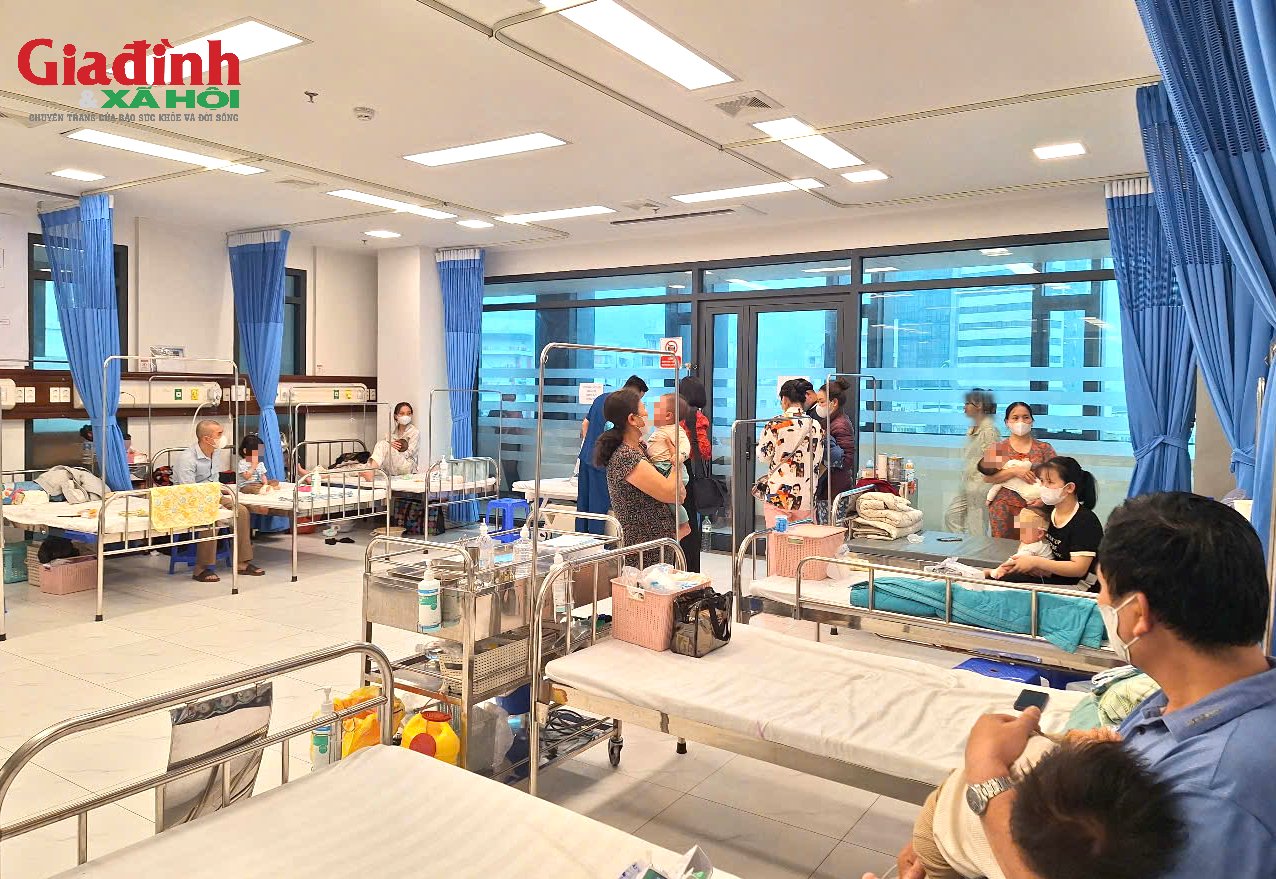
Most of the measles patients being treated here are children under 2 years old. Photo: N.Mai.
Among the hospitalized patients (more than 300 cases), most patients had complications of pneumonia, some patients had severe complications of pneumonia, respiratory failure, and required oxygen support, invasive and non-invasive ventilation. Some seriously ill children were those with underlying diseases such as spinal muscular atrophy, malnutrition, Down syndrome, and other chronic diseases.
Most measles patients have not been vaccinated.
According to the reporter of the Family and Social Affairs page, at Hanoi Children's Hospital, measles patients are being isolated and treated in a separate department (Intensive Care - Anti-Poison Department) to avoid cross-infection in the hospital.
Sitting and taking care of her 8-month-old grandchild who has measles and is being treated at the hospital, Ms. Dao Thi Minh (in Thuong Tin, Hanoi) said that at home, her grandchild had a high fever and was taken to a nearby medical facility for treatment, but the fever did not go down after 3 days.
Worried about the child's health, the family continued to take him to Hanoi Children's Hospital. Here, the child tested positive for measles. Because the child had previously had hand, foot and mouth disease and influenza A, he was in a weak condition and had not been vaccinated against measles.
At the hospital, the child had complications of pneumonia and was treated with antibiotics, antibody transfusions, and early respiratory support intervention. After 5 days, the child showed good progress and was taken off the ventilator.
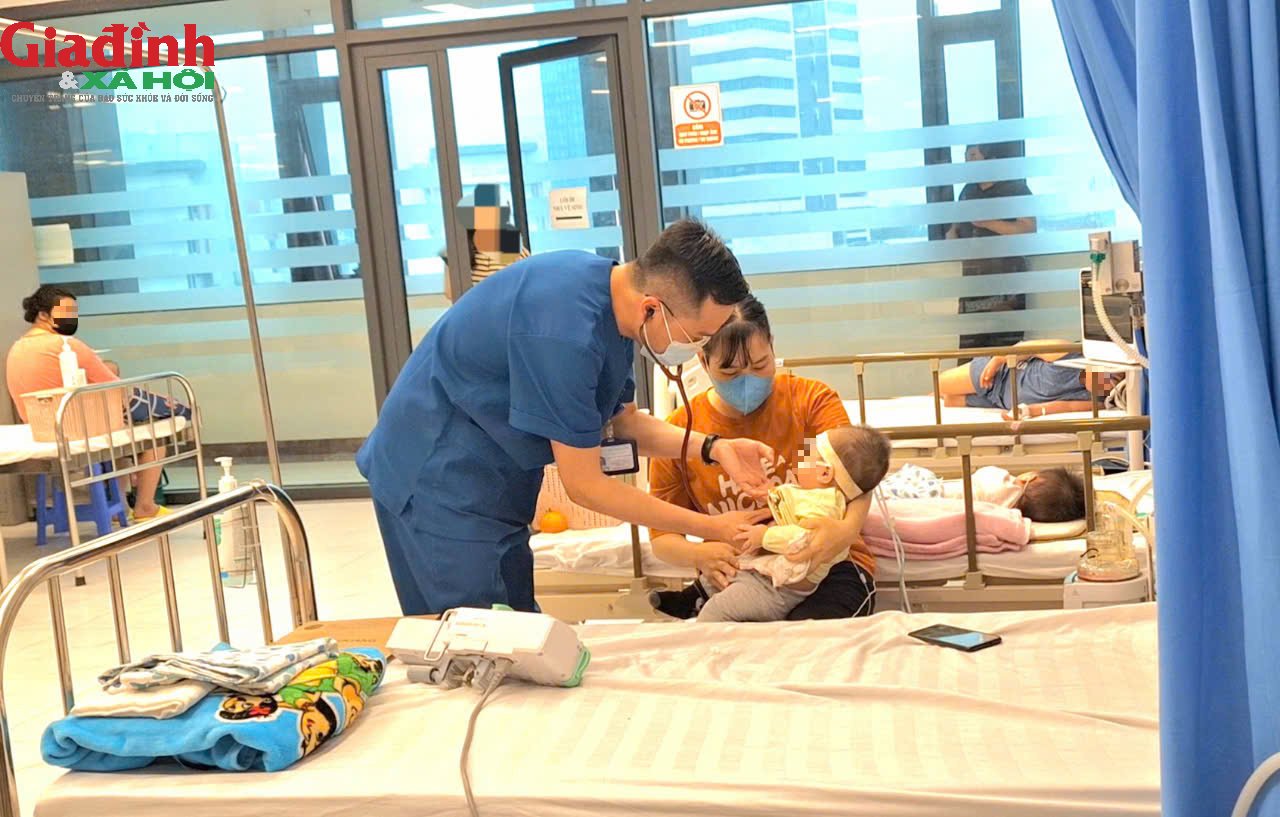
Head Doctor examines a child being treated for measles at the department. Photo: N.Mai
Also taking care of her child being treated for measles at the Intensive Care and Anti-Poison Department, Ms. Nong Thi Hang (in Cao Bang) said that nearly a week ago, her son (15 years old) had a continuous high fever of nearly 40 degrees, swollen lymph nodes on both sides of the jaw, and poor appetite, so the family took him to Hanoi Medical University Hospital for examination. When the result was positive for measles, the child was transferred to Hanoi Children's Hospital for treatment.
Ms. Hang said that her son had previously had measles when he was 9 months old. Because the family subjectively thought that once he had it, he would not get it again, the family did not vaccinate him against measles. Therefore, when her son got sick, she was also aware of the need to vaccinate him to prevent infectious diseases in young children, including measles.
According to Master, Doctor Nguyen Van Truong, most of the children being treated at the Department are under 2 years old, most are under 9 months old, and have not been vaccinated. The children are exposed directly and indirectly to measles. Some children have been treated for underlying diseases or infectious diseases at other hospitals. After returning home for a while, they were found to have measles.
Another group is children over 4-5 years old, with some congenital diseases, reduced resistance and have not been vaccinated, causing the vaccine to weaken, so they also get sick and have to be hospitalized for treatment.
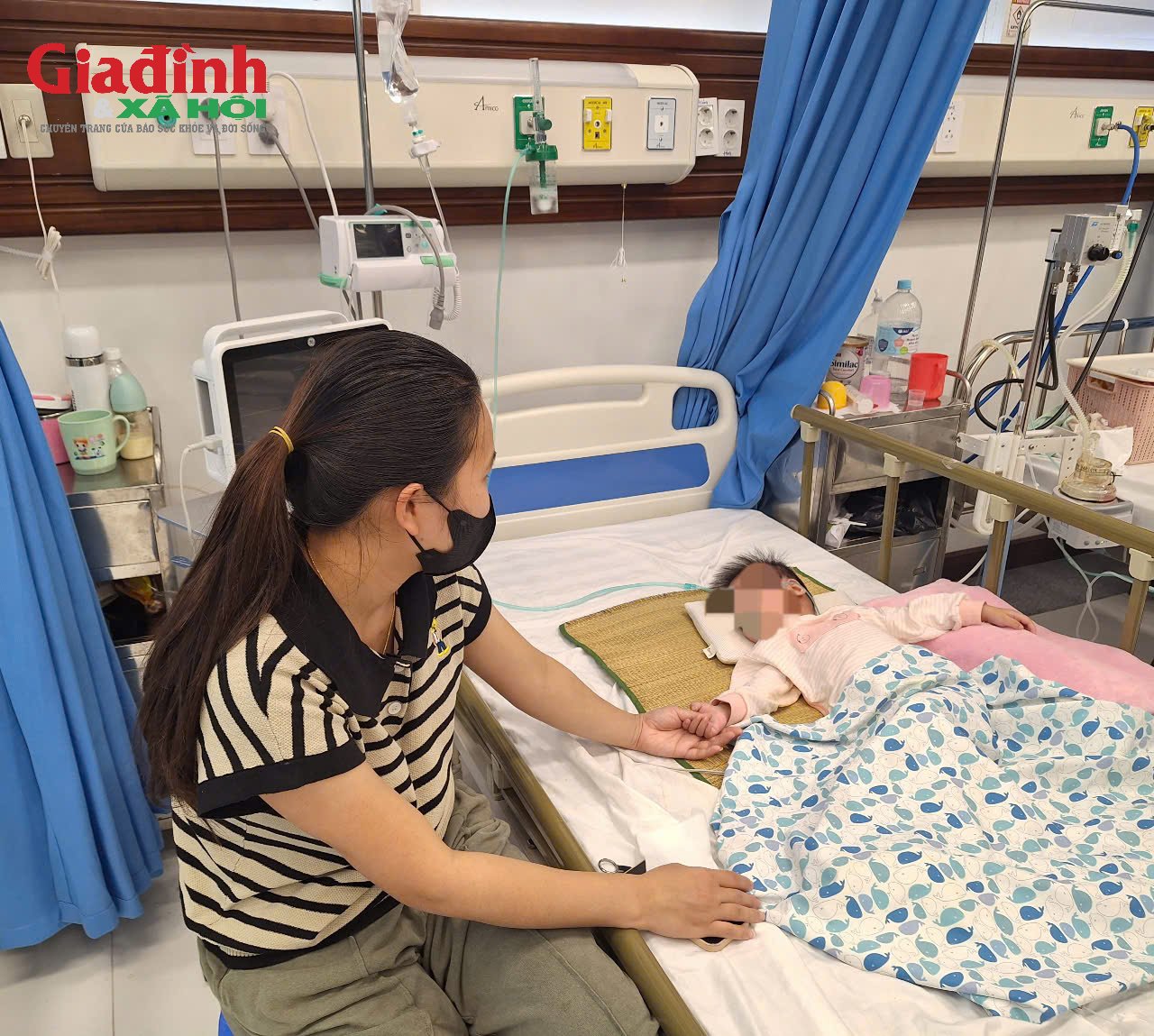
A 2-year-old malnourished baby with a congenital disease is being treated for measles at the hospital. Photo: N.Mai.
According to Master, Doctor Nguyen Van Truong, for children with measles complications requiring ventilators, most have been successfully treated at the hospital. There was one case of a premature baby with a complex congenital disease that had to be transferred to the National Children's Hospital for treatment. After stabilizing, the child was transferred to the Hanoi Children's Hospital for further monitoring and treatment.
The case of a 2-year-old girl (in Thanh Xuan, Hanoi) with a complex congenital disease, multiple intestinal obstructions, had surgery and an artificial anus placed at another medical facility. The child had poor absorption and was severely malnourished, so her body was very sensitive. Currently, the child is still receiving intensive treatment at the hospital.
Measles prevention recommendations
MSc. Dr. Nguyen Van Truong said that measles is an infectious disease transmitted through the respiratory tract, through droplets. It is worth noting that measles spreads the fastest among infectious diseases, the infection rate is even higher than COVID.

MSc. Dr. Nguyen Van Truong, Deputy Head of the Department of Intensive Care and Anti-Poison, Hanoi Children's Hospital. Photo: N.Mai.
" If you are not immune, up to 9 out of 10 people can get the disease if they come into direct contact with a measles patient ," Dr. Truong emphasized.
According to Dr. Truong, vaccines are an effective measure to prevent infectious diseases, including measles. Therefore, parents should have their children vaccinated against measles according to the recommended schedule. For children in areas with many measles patients, vaccination can be done as early as 6-9 months.
In addition, do not let children get close to or come into contact with children suspected of having measles; wear masks in crowded places, wash hands with soap regularly when taking care of children; keep children's bodies, nose, throat, eyes and mouth clean every day; ensure nutrition and keep children's bodies warm.
Nursery schools, kindergartens, and schools with large concentrations of children need to be kept clean, airy, and well-lit; toys, learning tools, and classrooms should be regularly disinfected with common disinfectants.
When detecting signs of suspected measles (fever, cough, runny nose, rash), it is necessary to isolate the child early and take him/her to the nearest medical facility for examination, timely treatment advice, and to avoid possible complications.
Doctors recommend vaccination to prevent measles in children. Video: N.Mai
Source: https://giadinh.suckhoedoisong.vn/benh-soi-lay-nhanh-hon-covid-19-nhieu-tre-em-nguoi-lon-nhap-vien-trong-tinh-trang-nguy-kich-172250328142348305.htm




![[Photo] Prime Minister Pham Minh Chinh receives delegation of leaders of US universities](https://vstatic.vietnam.vn/vietnam/resource/IMAGE/2025/3/31/8be7f6be90624512b385fd1690124eaa)
![[Photo] 2nd Conference of the Party Executive Committee of Central Party Agencies](https://vstatic.vietnam.vn/vietnam/resource/IMAGE/2025/3/31/8f85b88962b34701ac511682b09b1e0d)


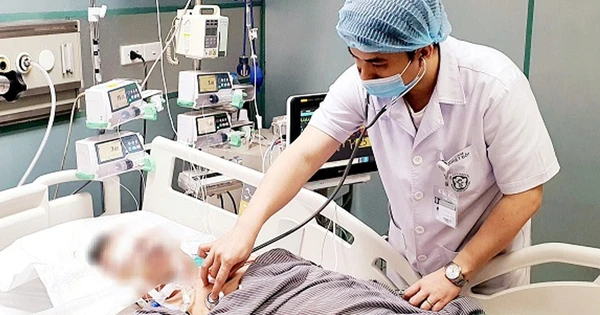




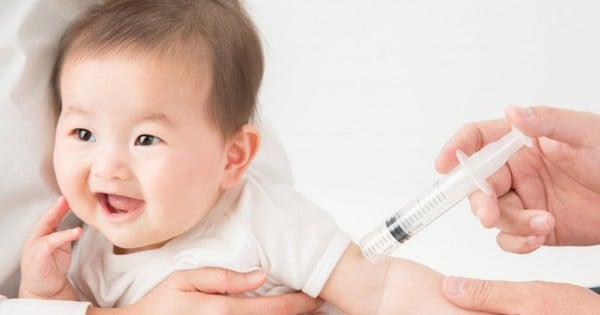
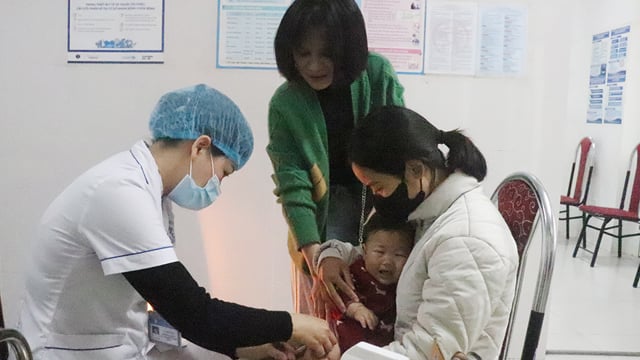
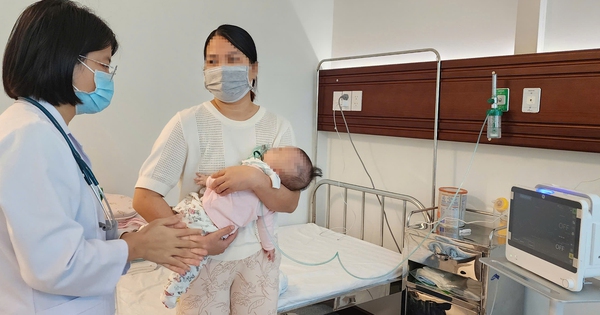
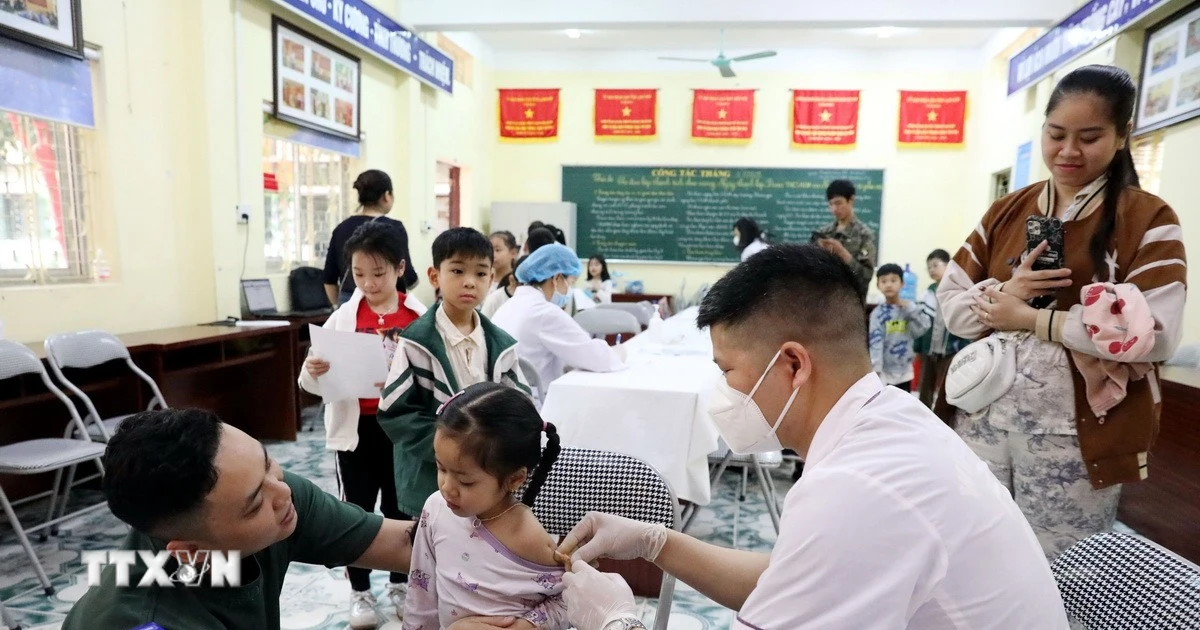
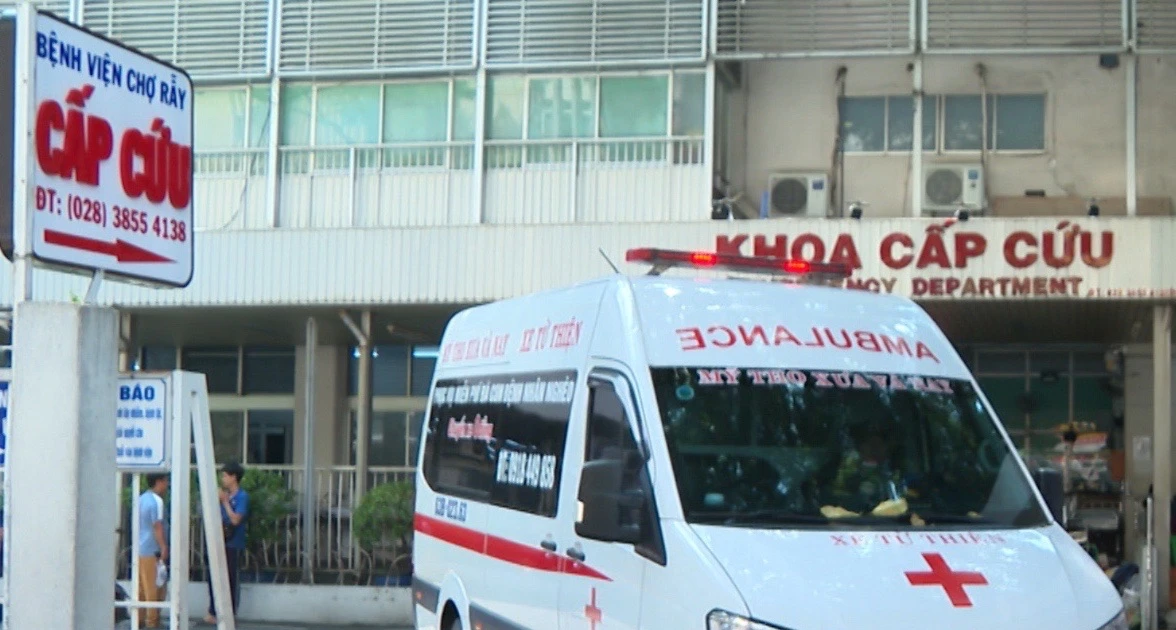
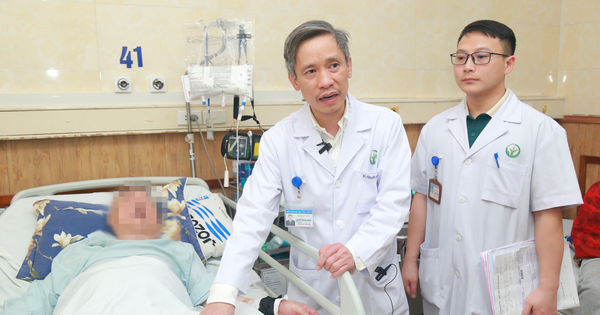
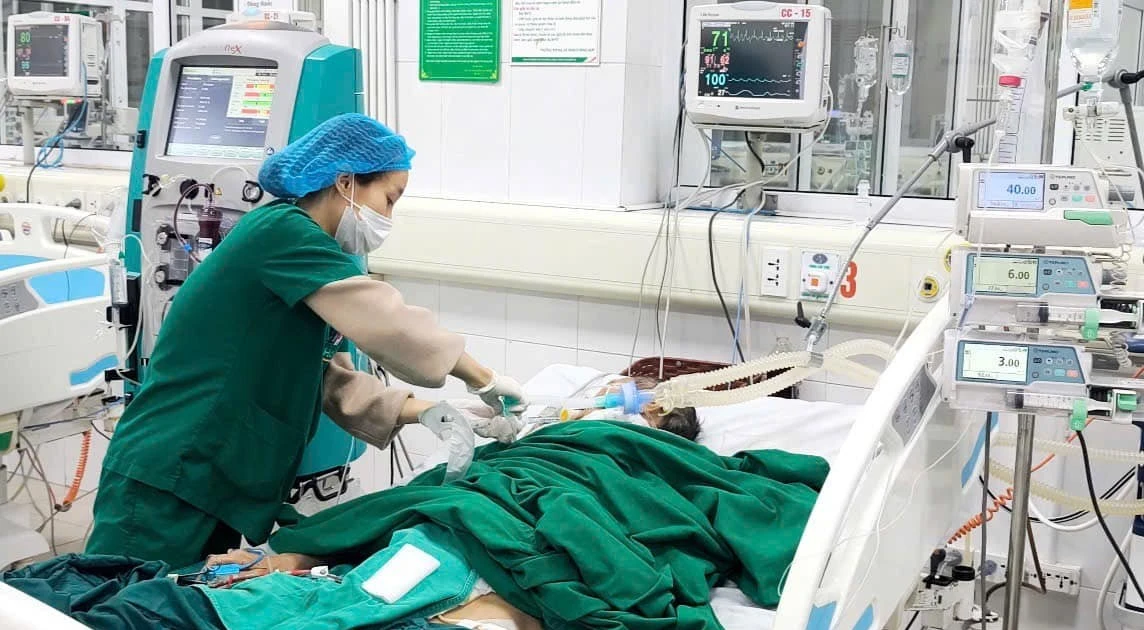







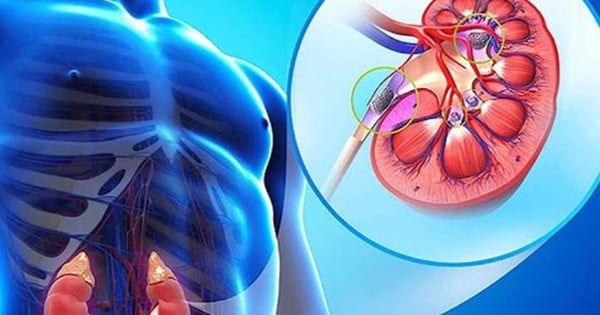


![[Photo] Ministry of Defense sees off relief forces to the airport to Myanmar for mission](https://vstatic.vietnam.vn/vietnam/resource/IMAGE/2025/3/30/245629fab9d644fd909ecd67f1749123)
















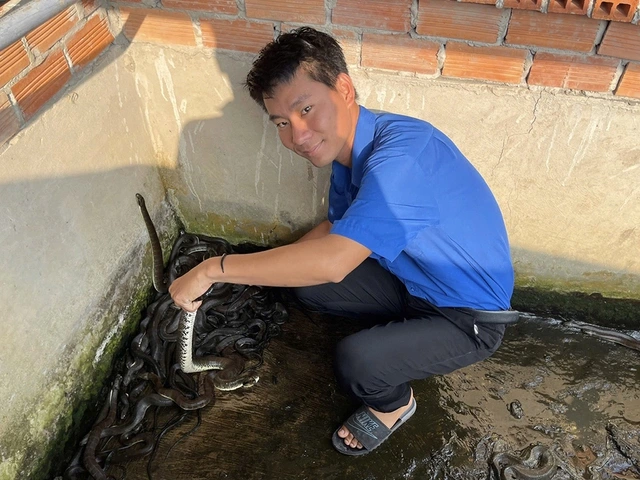















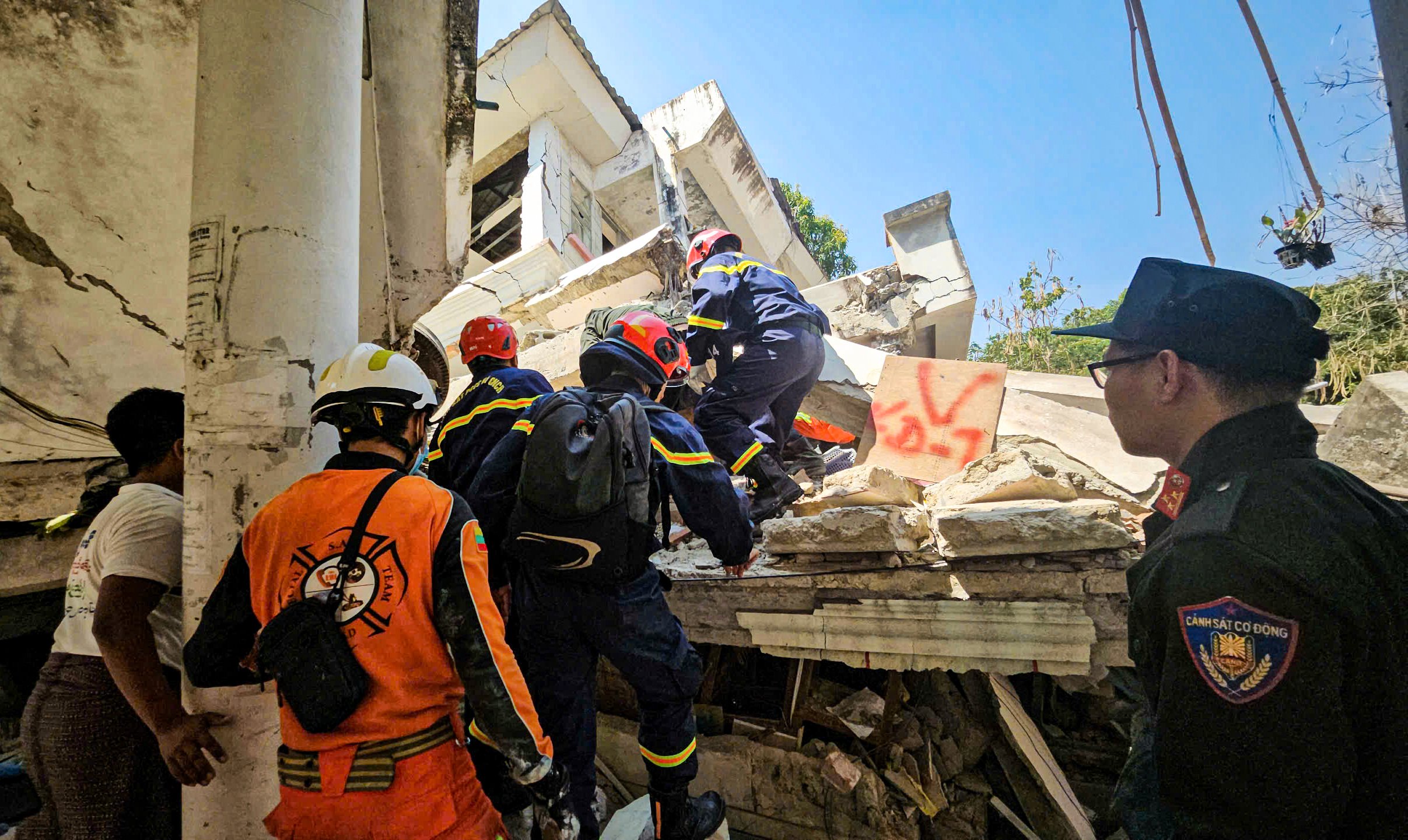














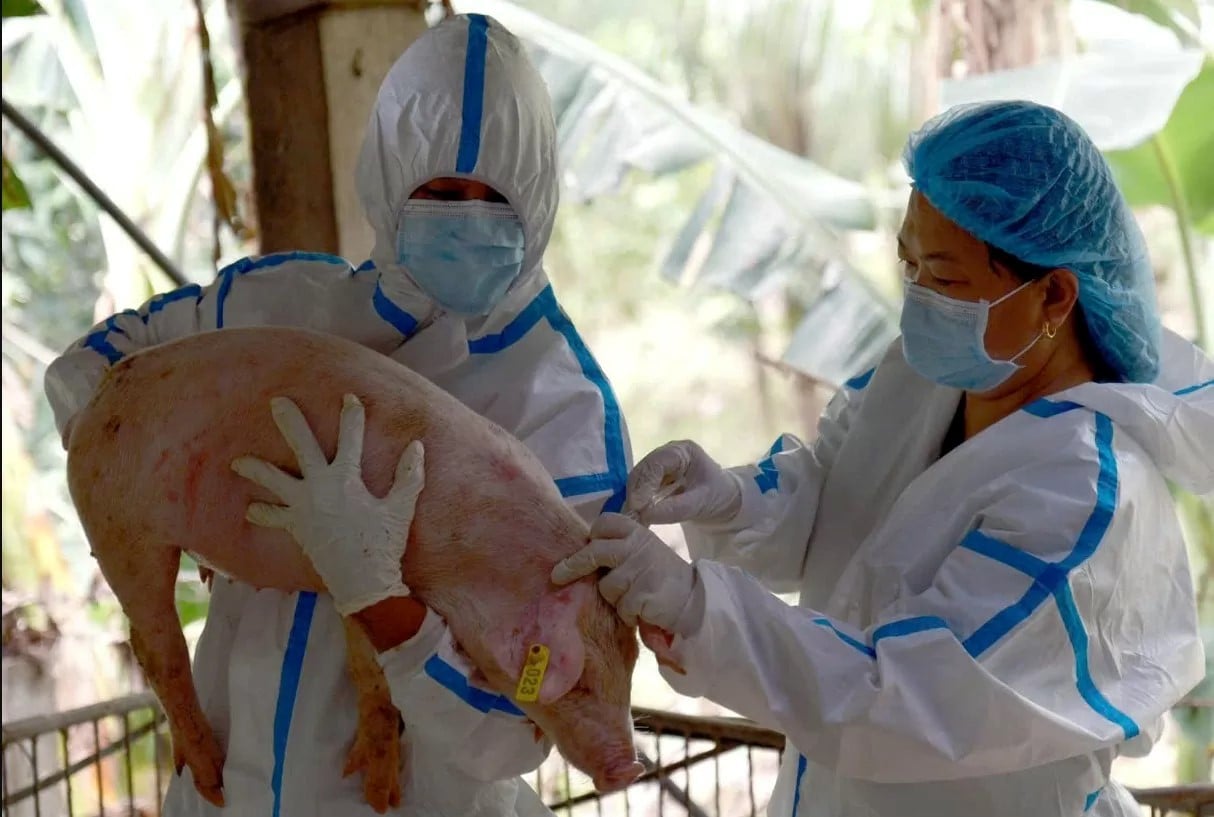








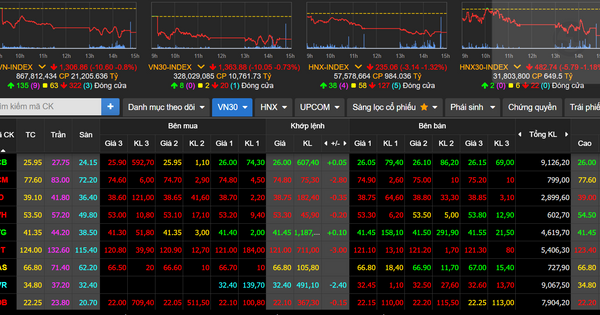








![[REVIEW OCOP] An Lanh Huong Vet Yen Cat](https://vstatic.vietnam.vn/vietnam/resource/IMAGE/2025/3/27/c25032328e9a47be9991d5be7c0cad8c)

Comment (0)